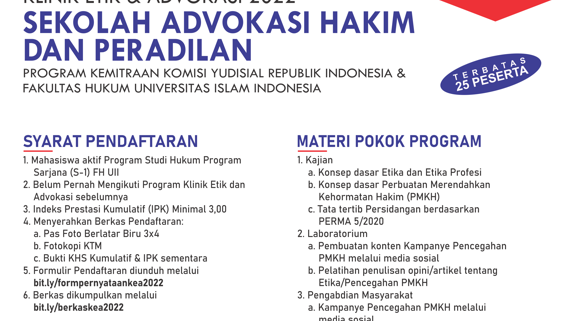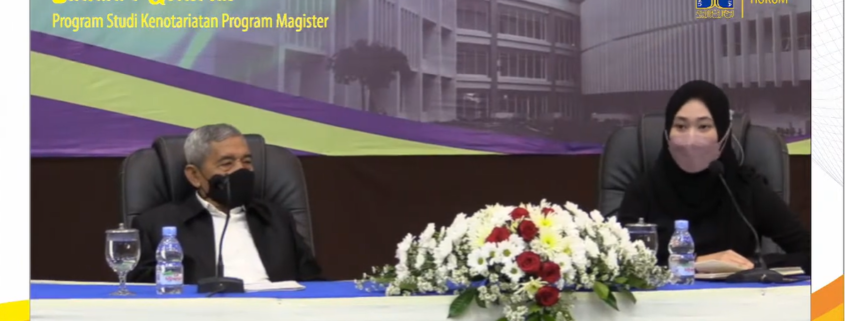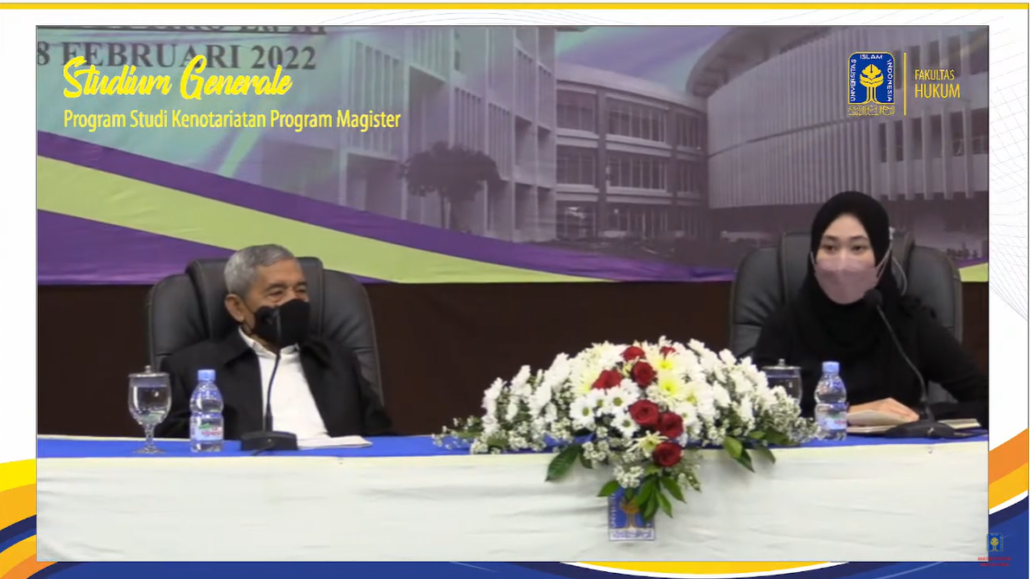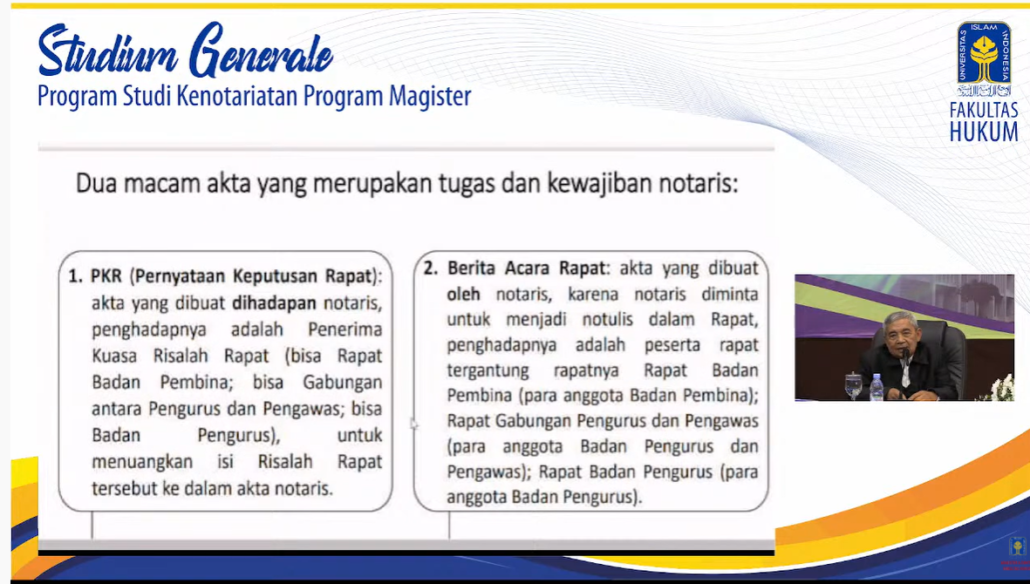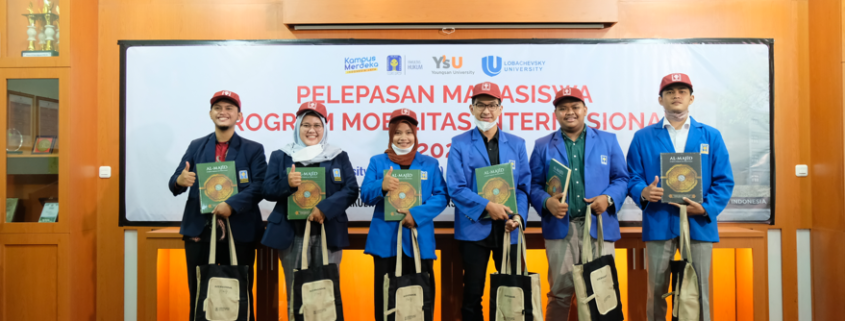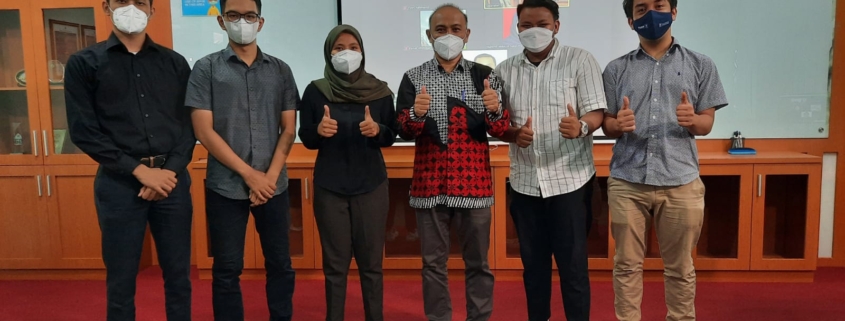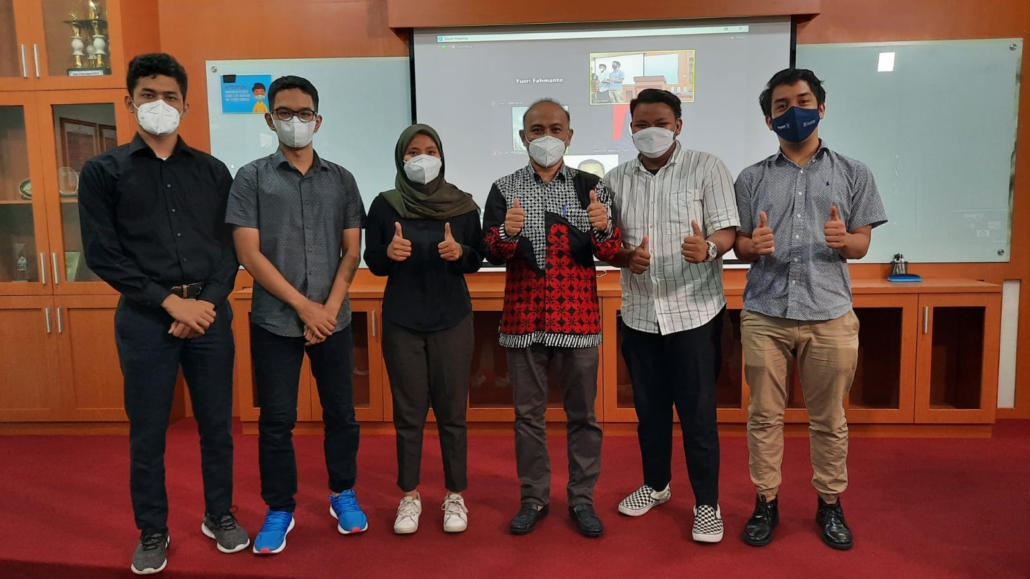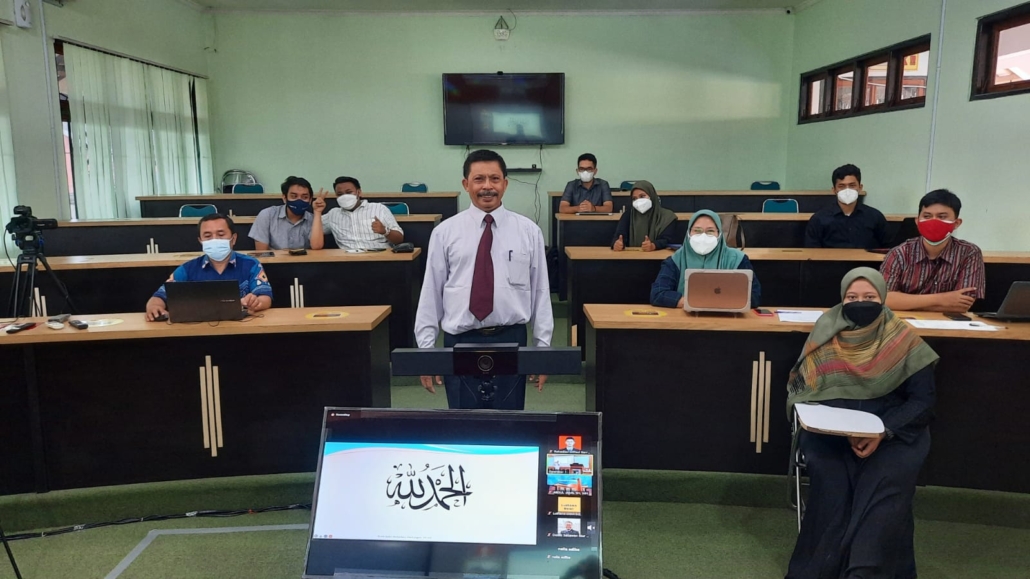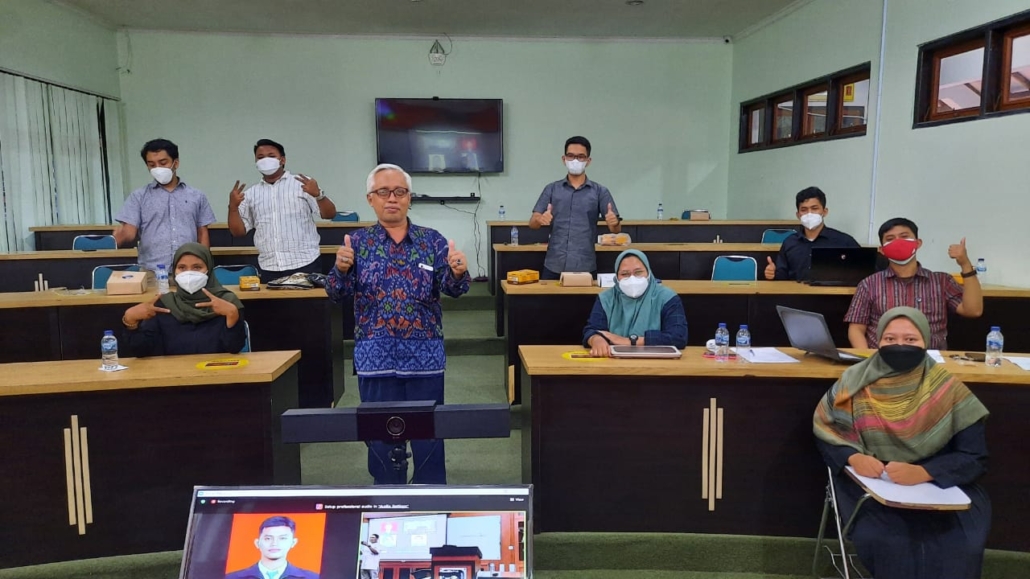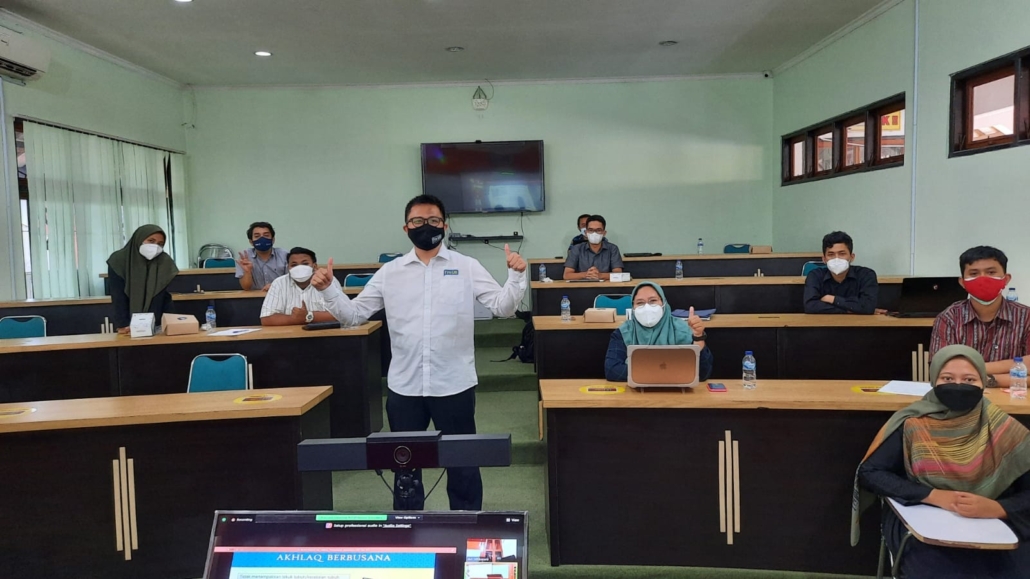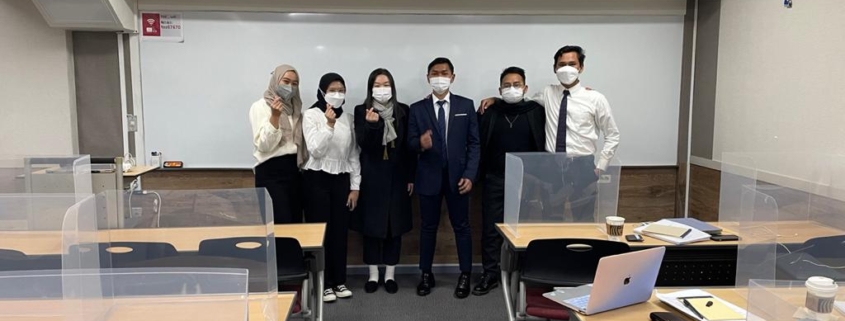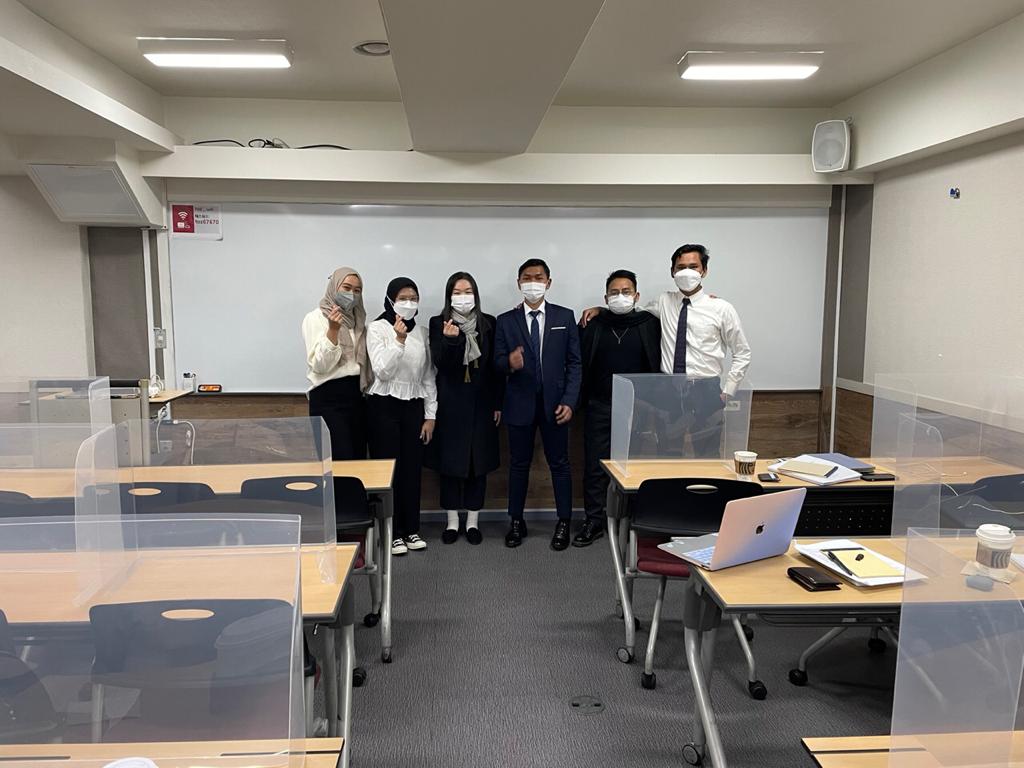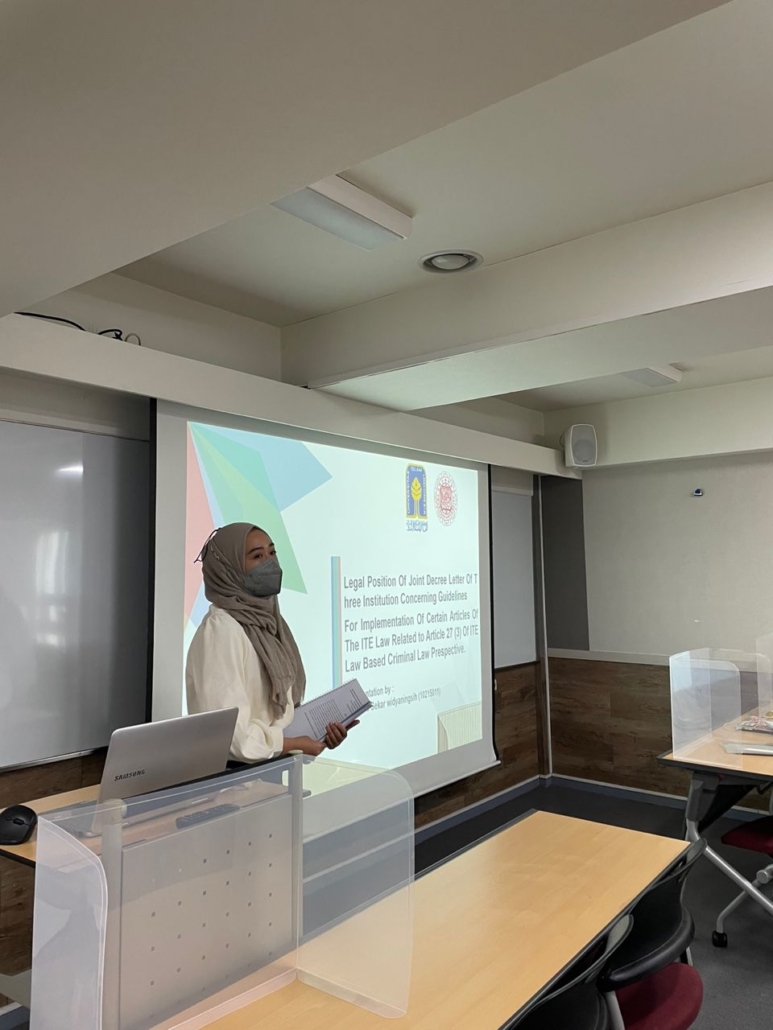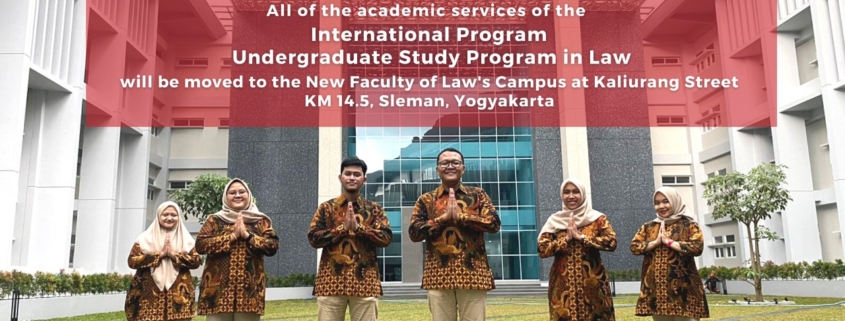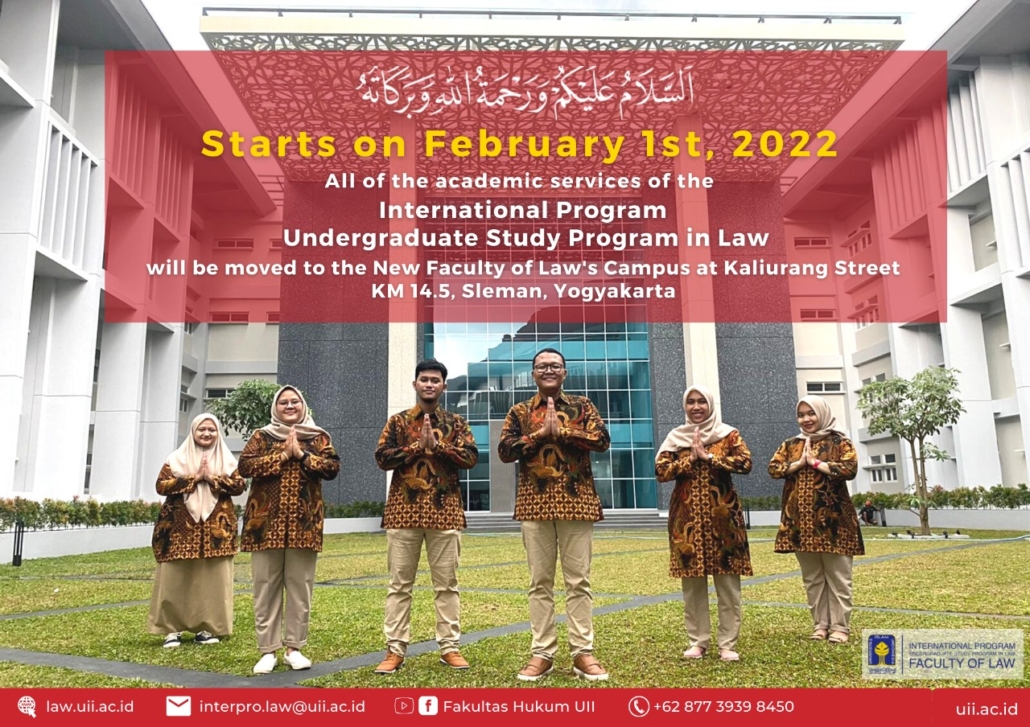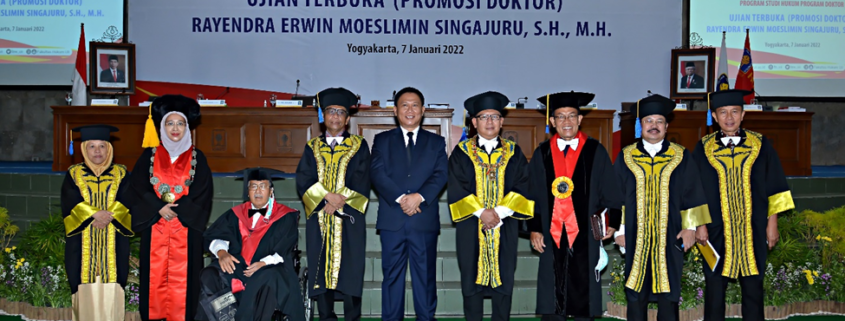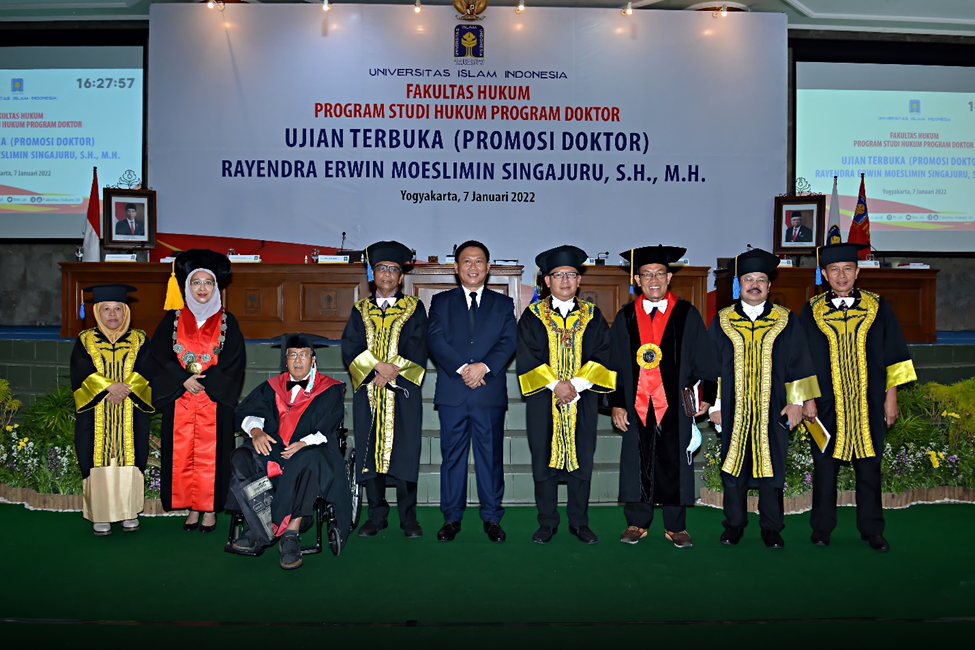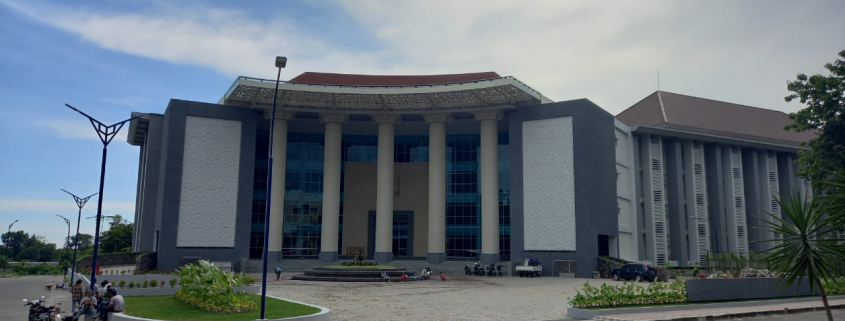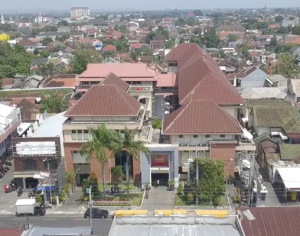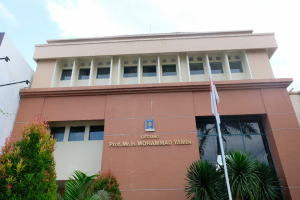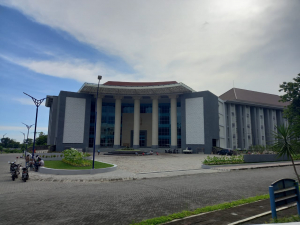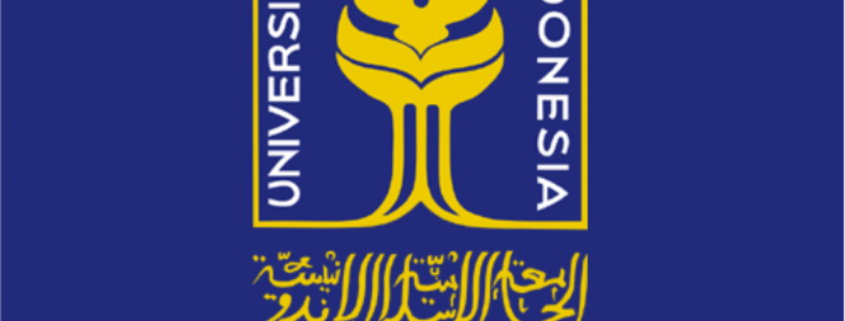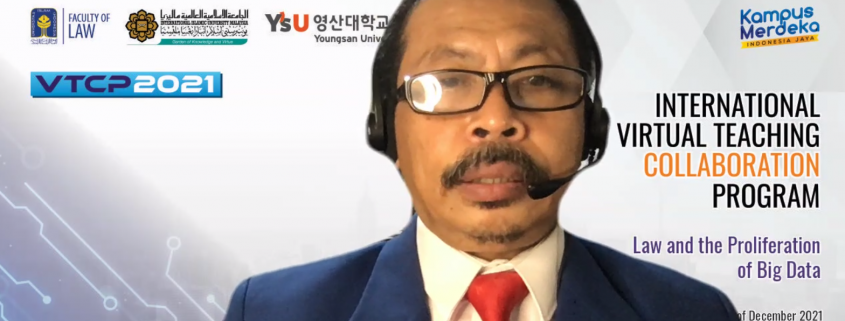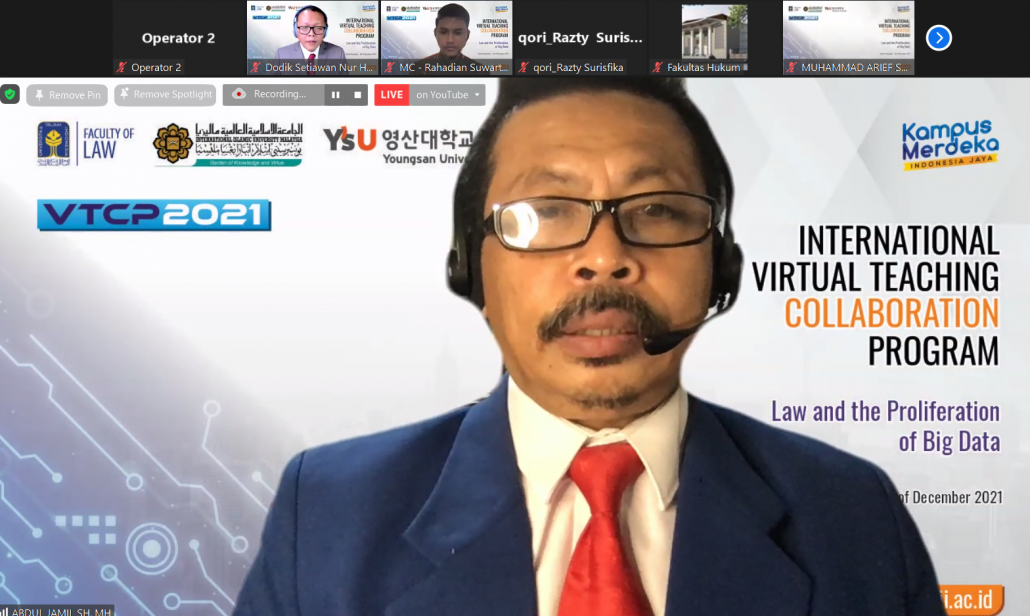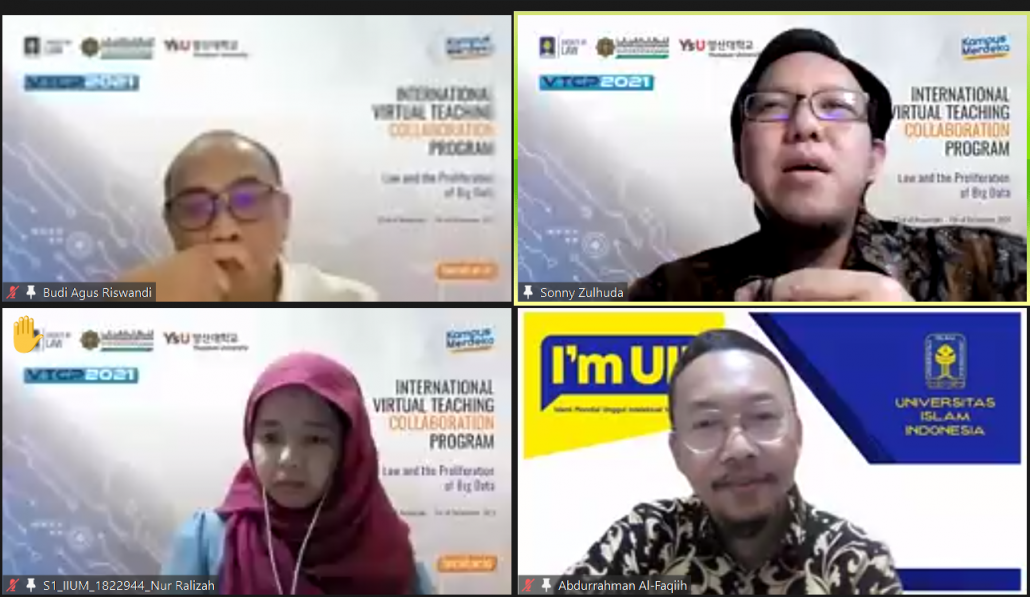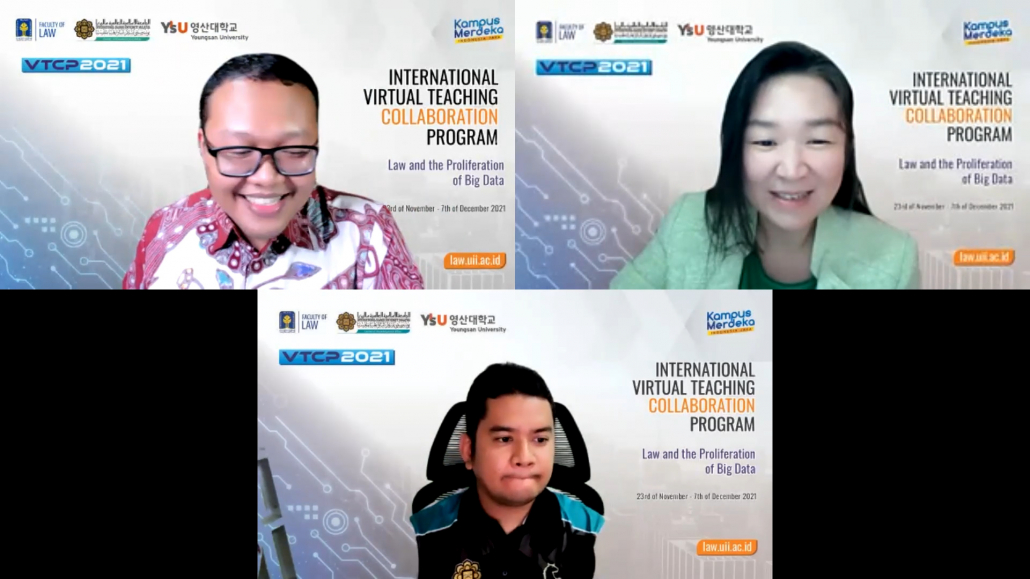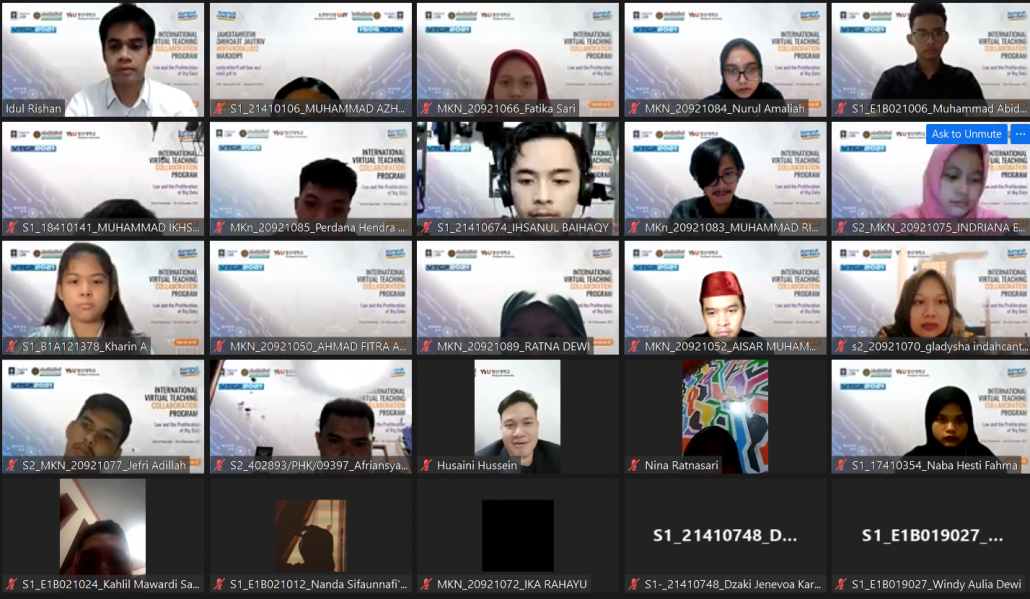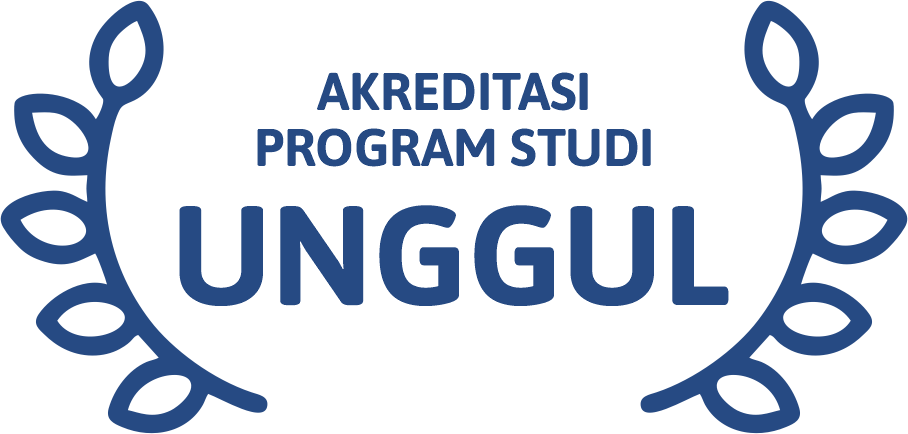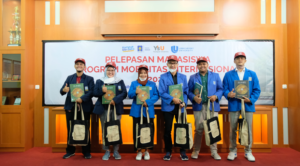
[TAMAN SISWA]; On Tuesday (25/01), the 2022 International Mobility Program Student Release event was held successfully by the Faculty of Law, Indonesian Islamic University (FH UII). The event was attended by the Dean of the Faculty of Law, Dr. Abdul Jamil, S.H., M.H., Deputy Dean for Resources, Hanafi Amrani, S.H., M.H., LL.M., Ph.D., Head of the Law Department, Dr. Muhammad Arif Setiawan, S.H., M.H., Secretary of the Department of the Faculty of Law, Islamic University of Indonesia, Bagya Agung Prabowo, S.H., M.Hum., Ph. D., Head of the Undergraduate Law Study Program, Prof. Dr. Budi Agus Riswandi, S.H, M. Hum., Secretary of the Undergraduate Law Study Program, Ari Wibowo, S.H., S.HI, M.H., Secretary of the International Law Study Program, Dodik Setiawan, S.H., M.H., LL.M., Ph. .D directly at the Faculty of Law, Islamic University of Indonesia. The Release ceremony began with an opening by the Master of Ceremony (MC) and continued with remarks and reports by the Head of the 2022 International Mobility Program Team, namely Dodik Setiawan, S.H., M.H., LL.M., Ph.D. In his remarks, he said that FH UII in the last 5 years has had many achievements, especially in the internationalization program. Not only doing research with universities abroad, but also holding joint programs such as credit transfer and double degrees for undergraduate and postgraduate students. This event was also attended by parents from the online delegation of the International Mobility Program.
Then the delegation representatives delivered a farewell welcome represented by Muhammad Sulhan. The names of the delegates in the 2022 International Mobility Program are divided into 2 (two) destinations; 1) Muhammad Sulhan, Muhammad Rhayhan Zidane, Veni Nur Setyaningsih who will carry out the Credit Transfer Program at Youngsan University, South Korea; 2) Wildan Amrillah Amrani, Arief Hasanul Husnan Nasution, Tazkiya Amalia Nasution and Rahadian D. B. Suwartono who will carry out the Undergraduate and Masters Credit Transfer Program at Lobachevsky University Russia. The release of the delegates was carried out by the Dean of the Faculty of Law, Dr. Abdul Jamil, S.H., M.H. who said that apart from their parents, the delegates were very proud of the UII Faculty of Law and included hopes for the delegates so as not to forget the values that had been conveyed during the preparation for departure.
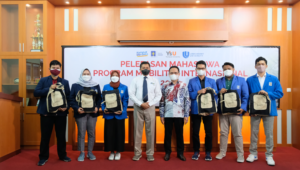
After the remarks by the Dean of the Faculty of Law UII, continued with the delivery of education kits and health kits in the form of honey, vitamins, hand sanitizers and health supplements by the Dean of the Faculty of Law UII accompanied by the Deputy Dean for Resources. Students are also provided with the Koran which is submitted by the Head of the Study Program accompanied by the Secretary of the Study Program. In addition, the head of the Law Department accompanied by the Secretary of the Law Department at the Islamic University of Indonesia was paired with a hat marked with the Faculty of Law UII.
The event for the release of the 2022 International Mobility Program Students was finally closed with a prayer that was said together and led by the Secretary of the Department of the Faculty of Law at the Islamic University of Indonesia, Bagya Agung Prabowo, S.H., M.Hum., Ph. D. The event for the release of the 2022 International Mobility Program Students was finally closed with a prayer that was said together and led by the Secretary of the Department of the Faculty of Law at the Islamic University of Indonesia, Bagya Agung Prabowo, S.H., M.Hum., Ph. D.
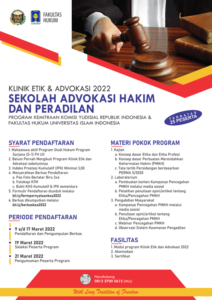 Pembukaan Pendaftaran Sekolah Advokasi Hakim dan Peradilan (Program Kemitraan Fakultas Hukum UII dengan Komisi Yudisial Republik Indonesia)
Pembukaan Pendaftaran Sekolah Advokasi Hakim dan Peradilan (Program Kemitraan Fakultas Hukum UII dengan Komisi Yudisial Republik Indonesia)
